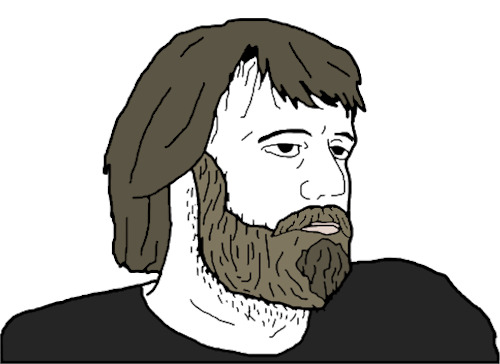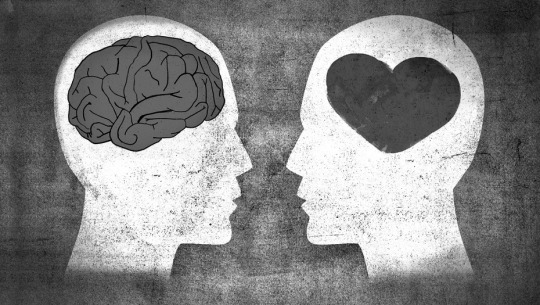#Žižek
Explore tagged Tumblr posts
Text


#zizek#slavoj žižek#žižek#ukraine#ukrainian#russian invasion#russia is a terrorist state#western hypocrisy
8 notes
·
View notes
Text

Title/Name: Slavoj Žižek, popularly known as 'Žižek', born in (1949). Bio: Slovenian philosopher, director, professor, senior researcher, cultural theorist, and public intellectual. He primarily works on continental philosophy (particularly Hegelianism, psychoanalysis, and Marxism), political theory, film criticism, and theology. Country: Slovenia Wojak Series: Chad (Variant), Feels Guy (Variant) Image by: Unknown Main Tag: Žižek Wojak
#Wojak#Žižek Wojak#Žižek#Zizek Wojak#Slavoj Zizek Wojak#Slavoj Žižek Wojak#Slavoj Žižek#Slavoj Zizek#Philosopher#Politics#White#Gray#Marxism#psychoanalysis#Feels Guy Series#Chad Series#Feels Guy Wojak#Chad Wojak#Zizek#Writer Author
41 notes
·
View notes
Text

4 notes
·
View notes
Text

well, we're back to academic articles live-blogging it seems
#žižek#slavoj žižek#philosophy memes#academia memes#academic shitposting#stu(dying)#gradblr#and so on
6 notes
·
View notes
Text
“We shouldn’t, for one thing, be afraid to raise a question avoided by those who emphasize the distinction between Hamas and the Palestinian majority: What if the majority of Palestinians, even if they don’t actively support Hamas, nonetheless admire it as the only organization with the gumption not just to complain about the Jewish state—but to openly attack it?
We also shouldn’t sidestep the brutality of Muslim against Muslim, Arab against Arab. In what is known as Black September in 1970, Jordan’s King Hussein killed thousands of Palestinians and expelled tens of thousands more. In 1991, Kuwait expelled 200,000 Palestinians. Syrian strongman Bashar al-Assad has killed and tortured thousands of Palestinians in the past decade, leaving aside the hundreds of thousands of Syrians killed by his regime during the (still-ongoing) Syrian Civil War. Between March 2022 and June 2023, Saudi border guards allegedly killed hundreds of Ethiopian migrants attempting to cross the border from Yemen into the oil-rich kingdom. Where was the much-vaunted solidarity among Muslims in these cases? Why don’t the crimes of Riyadh and Damascus trigger mass demonstrations in the Arab world?
In refusing to face up to these realities, the Islamic world obscures its own internal contradictions by way of the operation Lacan called the “quilting point”: One singular point of oppression—that of the Palestinians by Israel—is substituted for all the others. The brutality of Muslim regimes toward their own people isn’t the only internal impasse elided in this manner. There is also the lack of democracy in the region. Mass protests in Egypt, mostly carried out by the educated secular youth, compelled the military elite to allow free elections. Yet the silent majority of Muslim fundamentalists won at the ballot box, such that the liberal-secular protesters had to grudgingly approve a new military takeover. Even in the case of a decisive defeat for Israel, the Palestinians have little prospect of obtaining true freedom, given the continued stifling of democracy across the rest of the Middle East.
(…)
The larger taboo we must disregard is the one against referencing any historical contexts at all, as I have just been doing. I ran afoul of this taboo in my recent remarks on the war in Gaza at the Frankfurt Book Fair, which attracted considerable controversy. In this statement, I didn’t merely condemn Hamas, but granted that the Jewish state has the right to destroy the Islamist terror outfit. Nonetheless, I also commented on what Israel has been doing for decades in the West Bank, and this was enough to attract accusations of “relativizing” the Hamas attack. Yet what I reject isn’t the horror of the attack, nor Hamas’s undeniable depravity, but the idea that Oct. 7 marks an almost metaphysical break with all that came before it. When I made my initial statement, I was speaking a full 10 days after the initial Hamas attack; the war was raging, shock and grief had long since given way to fateful political and military decisions; a properly political analysis of the situation was sorely needed. It is still needed now.
The Israeli academic Eva Illouz, in a critical account of the left’s reactions to the Hamas attack, declared that she refuses “to contextualize the pain of Palestinians at having lost their land,” and by the same token asks that the global left do the same with regard to Israel: “Couldn’t the left have stood with us in our shock and grief just a short while, as many Arabs around the world and in Israel have done?” I agree with Illouz that ordinary people are “typically sensitive to the concreteness of their experience”; that “both Palestinians and Israelis will be obstinately insistent that their suffering is unique and not to be compared, that is, reduced to another’s”; and that “the concreteness of each group’s memory refuses the facile language of parallels.” At this level, there is no conceivable resolution, just a juxtaposition of different traumatic experiences.
However, it is precisely context that accounts in part for the raw effect of Hamas’s attack on Israelis and Jews worldwide, and of Israel’s bombardment of Gaza on Palestinians and Muslims across the Middle East: The slaughter of Jewish civilians inevitably evokes the memory of Shoah inscribed in the founding of Israel, while the bombing of Gaza is experienced by Palestinians as a second Nakba. The appeal to an entirely decontextualized shock and grief is thus inadequate—no wonder that, after invoking it, Illouz moved to a cold legal argumentation: “Collateral damage—a chillingly impersonal expression—is morally and legally different from the decapitation of children by combatants, because of the degree of intentionality and direct responsibility.” Yet even if such Gazan deaths aren’t strictly intentional, they are fully predictable: Armed forces like Israel’s know full well what will happen when they bomb a densely populated civilian area. Is there any limit to how much “collateral damage” is morally tolerable? “Far too many Palestinians have been killed,” US Secretary of State Antony Blinken stated recently, hinting that such a limit did exist but declining to put a number on it.
(…)
Decontextualized shock isn’t enough in response to either of these forms of violence; there is a need for a narrative that can encompass both. This story shouldn’t be one of “colonization”—contrary to many leftists, Jewish immigration to Israel can’t be reduced to colonialism—nor of terrorists’ refusal to accept the Jews returning to their homeland. Rather, what we have on our hands is an authentically tragic story in which neither side is simply right. The solution isn’t in choosing between competing grievances, but in a genuinely political act of creating a new social reality.
Whatever happens, a new global order is in the process of emerging, and the Gaza war is a nodal point that condenses the antagonisms that traverse it, a place where everything will be decided. This was also true of Ukraine. Yet today, some key distinctions are being blurred. Ibrahim Khraishi, Palestine’s permanent observer at the United Nations in Geneva, recently stated that “there are a plethora of international laws that can be applied” to Israel’s actions in Gaza. “They are applied fully when it comes to Ukraine,” he said, but “when it comes to us they are put aside.” He specifically mentioned European Commission President Ursula Von der Leyen’s allegations that Russia’s attacks on civilian infrastructure, including electricity, in Ukraine were war crimes.
The West’s claim to be upholding an international “rules-based order” looks increasingly implausible, even as its leaders attempt to present the defense of Ukraine against Russian aggression and the defense of Israel against Hamas as instances of the same global war against authoritarian Russia and Iran. On the opposite side, a degraded anti-imperialist left claims that Russia’s attack on Ukraine and Hamas’s attack on Israel were both justified defensive measures in response to long histories of oppression—in short, that Donetsk is the Russian West Bank. Within these frameworks, the situation of Palestine brings together opposite meanings. For many, it stands in for all European colonial sins, with Israelis occupying the position of “white” and “settler-colonial” oppressors of the Palestinians. At the same time, Israeli Jews continue to rely on the symbolism of their historical status as the victims of European oppression.
However, from a geopolitical perspective, the greatest casualty of the Gaza war will likely be Europe—or more precisely, the European Union. Europe has missed the opportunity to let its distinctive voice be heard and instead subordinated itself, with minor reservations, to unconditional US support for Benjamin Netanyahu. Should Donald Trump win the presidency again next year, Europe will disappear from the global map of strong actors, and the United States will transfigure itself into something resembling one of the BRICS countries that, on behalf of what they call a true multipolar world, will calmly tolerate each other’s crimes. Having tacitly conceded that Western universalism is no more than a pretext for power and domination, Europe will ensure its own irrelevance. The Middle East, meanwhile, will continue to be suffocated by the high-minded taboos that help maintain its brutal antagonisms.”
4 notes
·
View notes
Text
Westerners don't understand Žižek's way of talking/expressing himself. They are not accustomed to the way Balkan people express themselves, how they use curse words for example. They think it's funny how he talks, but to our ears it's just normal. Nothing funny or crazy about it. Just a normal sentence.
7 notes
·
View notes
Text
[...] sempre più prepotentemente il grande Altro fa mostra di aspettarsi da noi non già la temperanza, ma semmai — coerentemente con la caratterizzazione edonistica della nostra società su cui Žižek tanto insiste — l’eccesso. D’altro canto, proprio questo è quanto impone a sua volta il Super-io, che dunque, prosegue Žižek nell’intervista,
come Lacan aveva ben visto, […] funziona quale imperativo di godimento non meno che quale divieto. La conseguenza paradossale e tragica è una corsa sfrenata al godimento che, ovviamente, sfocia nell’impossibilità di godere, dal momento che il Super-io esige sempre di più.
Un tempo esclusivo depositario del divieto di godere, dunque, sempre più il Super-io sembra ora impartire piuttosto il divieto di non godere, al punto che, spiega ancora Žižek, «non ci si sente più in colpa quando ci si abbandona a piaceri illeciti, come prima, ma quando non si è in grado di approfittarne, quando non si arriva a godere».
Sull’altro versante, le dinamiche sovvertite dalla morte di Dio, lungi dall’averci affrancati dalle tradizionali proibizioni, ne alimentano l’insinuarsi nei luoghi più reconditi della psiche umana, sicché in quello che veniva tipicamente considerato il terreno di pulsioni sfrenate e di inconfessabili desideri repressi — l’inconscio — possono coltivarsi addirittura impulsi a un morigerato pudore. Ne conclude Žižek:
La psicoanalisi deve rendersi conto che la vecchia situazione, nella quale la società è portatrice di divieti e l’inconscio di pulsioni sregolate, è oggigiorno invertita: è la società a essere edonista e sregolata, mentre è l’inconscio che regola.
Dove «società» è evidentemente uno degli infiniti nomi di quel grande Altro che ha come sadico pendant l’incontentabile Super-io, il cui imperativo è oscenamente divenuto: «Godi!»
2 notes
·
View notes
Text
El hombre desarraigado.
Quizás, el ejercicio de la Filosofía, hoy, deba proceder del sentir al pensar; del pensar al sentir, y de este ir y venir continuo se pueda obtener una comprensión más ajustada del mundo. Si aceptamos que lo real se manifiesta de múltiples manera -como Slavoj Žižek, entre otros, entiende- no queda otra alternativa que el uso de cualquier capacidad de contacto con lo real para contemplar esta…

View On WordPress
0 notes
Text
"When six Ukrainian missiles caused panic all around the world, Russia's systematic destruction of Ukrainian infrastructure has been normalized."
—Slavoj Žižek, Slovenian philosopher
126 notes
·
View notes
Text
Honestly this is the realest thing he's ever said
89 notes
·
View notes
Text
slavoj žyžek for kyiv independent




full article:
74 notes
·
View notes
Text

1K notes
·
View notes


